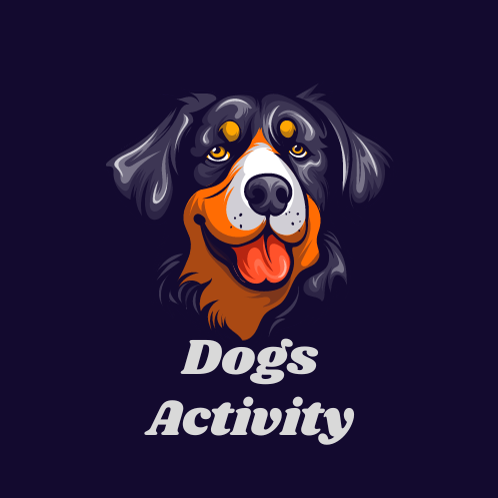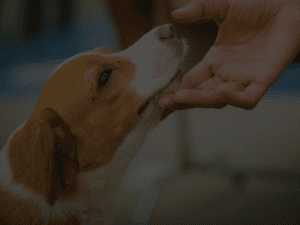
The decision to bring a furry friend into your life is a significant one. Dogs, known for their loyalty, companionship, and unwavering love, make wonderful additions to any family or individual’s life. While many people dream of having a dog, some are unsure about where to find the perfect canine companion. If you’re considering adopting a small dog and are searching for “small dogs for adoption near me,” you’ve come to the right place.
In this article, we will explore the world of small dogs available for adoption and the benefits of adopting over purchasing from a breeder. We’ll also guide you through the process of adopting a small dog and offer some tips to ensure a smooth transition for both you and your new furry friend.
Chapter 1: The Joy of Adopting Small Dogs
Small dogs come in a variety of breeds, each with its own unique charm and personality. While it’s tempting to purchase a puppy from a breeder, adopting a small dog has its own set of advantages that you should consider.
1.1 Saving a Life
One of the most compelling reasons to adopt a small dog is the opportunity to save a life. Many small dogs end up in shelters for various reasons, such as owner surrenders, strays, or rescues from puppy mills. By adopting, you are giving a deserving dog a second chance at a happy, loving home.
1.2 Variety of Breeds
Adoption centers and shelters have a wide variety of small dog breeds available. Whether you’re looking for a Chihuahua, Dachshund, Shih Tzu, or a mixed breed, you can often find your preferred breed or a charming mix at your local shelter.
1.3 Reduced Cost
Adoption fees are typically much lower than the cost of purchasing a dog from a breeder or pet store. These fees often cover initial vaccinations, spaying or neutering, and microchipping, making adoption a cost-effective option for acquiring a small dog.
1.4 Avoiding Puppy Mills
By choosing to adopt a small dog, you’re not supporting the unethical practices of puppy mills. Puppy mills prioritize profit over the well-being of the animals, often leading to health and behavior issues in their puppies. Adoption helps put an end to these cruel breeding operations.
Chapter 2: Finding Small Dogs for Adoption Near You
Now that you’re convinced of the benefits of adopting a small dog, you’re probably wondering how to go about finding the perfect pup in your local area. Here are some effective ways to search for small dogs for adoption near you.
2.1 Local Animal Shelters
Your local animal shelters are a great place to start your search. These organizations house dogs of all shapes and sizes, and they often have small dogs available for adoption. Visit their websites or give them a call to inquire about their current small dog offerings.
2.2 Rescue Organizations
Many small dog rescue organizations focus exclusively on finding forever homes for small breeds. These groups often have a deep understanding of the specific needs and behaviors of small dogs. A quick online search or a visit to a pet adoption website can connect you with these groups.
2.3 Pet Adoption Websites
Websites like Petfinder and Adopt-a-Pet have comprehensive databases of dogs available for adoption across the country. You can filter your search based on location, size, breed, and other criteria to find small dogs in your area. These websites often provide photos and detailed descriptions of the available dogs.
2.4 Local Classifieds and Social Media
Check out local classified ads and social media platforms to see if anyone is looking to rehome their small dog. Sometimes, people are unable to keep their pets and turn to these channels to find loving new homes for them.
2.5 Word of Mouth
Don’t underestimate the power of word of mouth. Let your friends, family, and coworkers know that you’re looking to adopt a small dog. They might have connections or know of small dogs in need of a loving home.
Chapter 3: Preparing for Adoption
Before bringing a small dog into your home, it’s essential to make sure you are fully prepared for the responsibility of pet ownership. Here are some crucial steps to take before adopting your new furry friend.
3.1 Evaluate Your Lifestyle
Consider your daily routine, work hours, and living situation to determine if you can provide a stable and loving environment for a small dog. Small dogs, just like their larger counterparts, require attention, exercise, and social interaction.
3.2 Research Small Dog Breeds
Different small dog breeds have varying temperaments, exercise needs, and grooming requirements. Research the breed you are interested in to ensure it aligns with your lifestyle and preferences. For example, if you’re considering a Dachshund, be aware that they have a strong hunting instinct and may require extra training and supervision around smaller pets.
3.3 Puppy-Proof Your Home
If you’re adopting a puppy, prepare your home for their arrival. Remove potential hazards, secure cabinets, and keep dangerous chemicals out of reach. Puppies are naturally curious and will explore their environment, so it’s essential to create a safe space for them.
3.4 Gather Supplies
Before bringing your new dog home, gather all the necessary supplies. This includes food, water bowls, a comfortable bed, toys, a leash, a collar or harness, and grooming tools. Having these items on hand will ensure a smooth transition for your new furry friend.
3.5 Choose a Veterinarian
Select a reputable veterinarian for your small dog. Regular veterinary care is essential for maintaining your dog’s health. Make an appointment for a thorough checkup shortly after adopting your new pet.
Chapter 4: The Adoption Process
Once you’ve found a small dog you’d like to adopt, you’ll need to go through the adoption process. Here’s what to expect and how to navigate it.
4.1 Adoption Application
Most shelters and rescue organizations require potential adopters to fill out an adoption application. The application typically asks about your living situation, experience with pets, and your plans for caring for the dog. Be honest and thorough in your responses.
4.2 Meet and Greet
Once your application is approved, you’ll have the opportunity to meet the small dog you’re interested in. Spend some time with the dog to see if your personalities and energy levels are a good match. It’s essential to establish a connection with your potential pet.
4.3 Home Visit
In some cases, the adoption organization may conduct a home visit to ensure that your living environment is safe and suitable for a small dog. Be prepared for this step and address any concerns they may have.
4.4 Adoption Fee
Expect to pay an adoption fee, which typically covers the cost of vaccinations, spaying or neutering, and microchipping. While this fee varies from one organization to another, it’s generally much lower than the cost of purchasing a dog from a breeder.
4.5 Adoption Agreement
Before taking your new small dog home, you’ll need to sign an adoption agreement. This agreement outlines the responsibilities of both the adopter and the adoption organization. Be sure to read and understand the terms and ask any questions you may have.
Chapter 5: Bringing Your Small Dog Home
The day has finally come, and your new small dog is ready to go home with you. Here are some tips for a smooth transition.
5.1 Give Them Space
When you first bring your small dog home, give them some space and time to adjust. Your home is a new and unfamiliar environment, and it can be overwhelming for a small dog. Create a designated area with their bed, food, and water, so they have a safe space to settle in.
5.2 Gradual Introduction
If you have other pets at home, introduce them to your new small dog gradually. Keep them on a leash and supervise their interactions. Be patient, and allow time for everyone to get acquainted.
5.3 Establish a Routine
Dogs thrive on routine. Set a consistent schedule for feeding, walks, playtime, and potty breaks. This will help your small dog adjust to their new life and provide them with a sense of security.
5.4 Positive Reinforcement
Use positive reinforcement to encourage good behavior. Small dogs can be just as trainable as larger breeds, so use treats, praise, and consistency to teach them commands and manners.
5.5 Socialization
Socialize your small dog with other dogs and people. It’s essential to expose them to different experiences and environments to build their confidence and prevent behavioral issues.
Chapter 6: Caring for Your Small Dog
Caring for a small dog involves meeting their physical, emotional, and mental needs. Here are some tips to ensure your small dog leads a happy and healthy life.
6.1 Regular Exercise
Small dogs need regular exercise to maintain their physical health and mental well-being. Take your small dog for daily walks and engage in playtime to keep them active and entertained.
6.2 Proper Nutrition
Choose a high-quality dog food that is appropriate for your small dog’s age, size, and activity level. Consult your veterinarian for recommendations on feeding and portion sizes.
6.3 Grooming
Small dog breeds often have specific grooming needs. Regular brushing, bathing, and nail trimming are essential to keep your dog’s coat and skin healthy. Some breeds may require professional grooming, so be prepared for that expense.
6.4 Health Checkups
Schedule regular veterinary checkups to monitor your small dog’s health and catch any potential issues early. Keep up with vaccinations and preventive care, such as flea and tick control.
6.5 Dental Care
Small dogs are prone to dental problems, so it’s crucial to establish a dental care routine. Brush your dog’s teeth regularly and provide dental chews or toys to help maintain their oral health.
Chapter 7: The Rewards of Adopting a Small Dog
Adopting a small dog is a rewarding experience that brings joy and companionship to your life. Here are some of the wonderful benefits of sharing your home with a small canine companion.
7.1 Unconditional Love
Small dogs are known for their loyalty and affection. They form deep bonds with their owners and provide unconditional love and companionship.
7.2 Lower Energy and Space Requirements
Small dogs are well-suited for apartment living and homes with limited space. They don’t require a large yard to run and play in, making them a great choice for city dwellers.
7.3 Travel Companions
Small dogs are easier to travel with, whether you’re going on a road trip, a plane ride, or simply visiting family and friends. Their size makes them more portable and adaptable to different environments.
7.4 Emotional Support
Small dogs often have a keen sense of their owner’s emotions and can provide emotional support. Their presence can help reduce stress and anxiety, making them great therapy animals.
7.5 Lifelong Friendship
When you adopt a small dog, you’re embarking on a journey of companionship that can last for many years. The bond you develop with your small dog can be one of the most fulfilling relationships in your life.
Conclusion
If you’re searching for “small dogs for adoption near me,” you’re on the path to making a positive impact on your life and the life of a deserving small dog. Adoption not only offers you the opportunity to find the perfect canine companion but also allows you to save a life, avoid supporting unethical breeding practices, and experience the many rewards of pet ownership.
Remember that adopting a small dog is a long-term commitment that comes with responsibilities, but the love, loyalty, and joy they bring to your life are well worth it. So, start your search, prepare for the adoption process, and get ready to welcome a small dog into your heart and home. Your new furry friend will be forever grateful for your decision to adopt them and give them a loving forever home.



